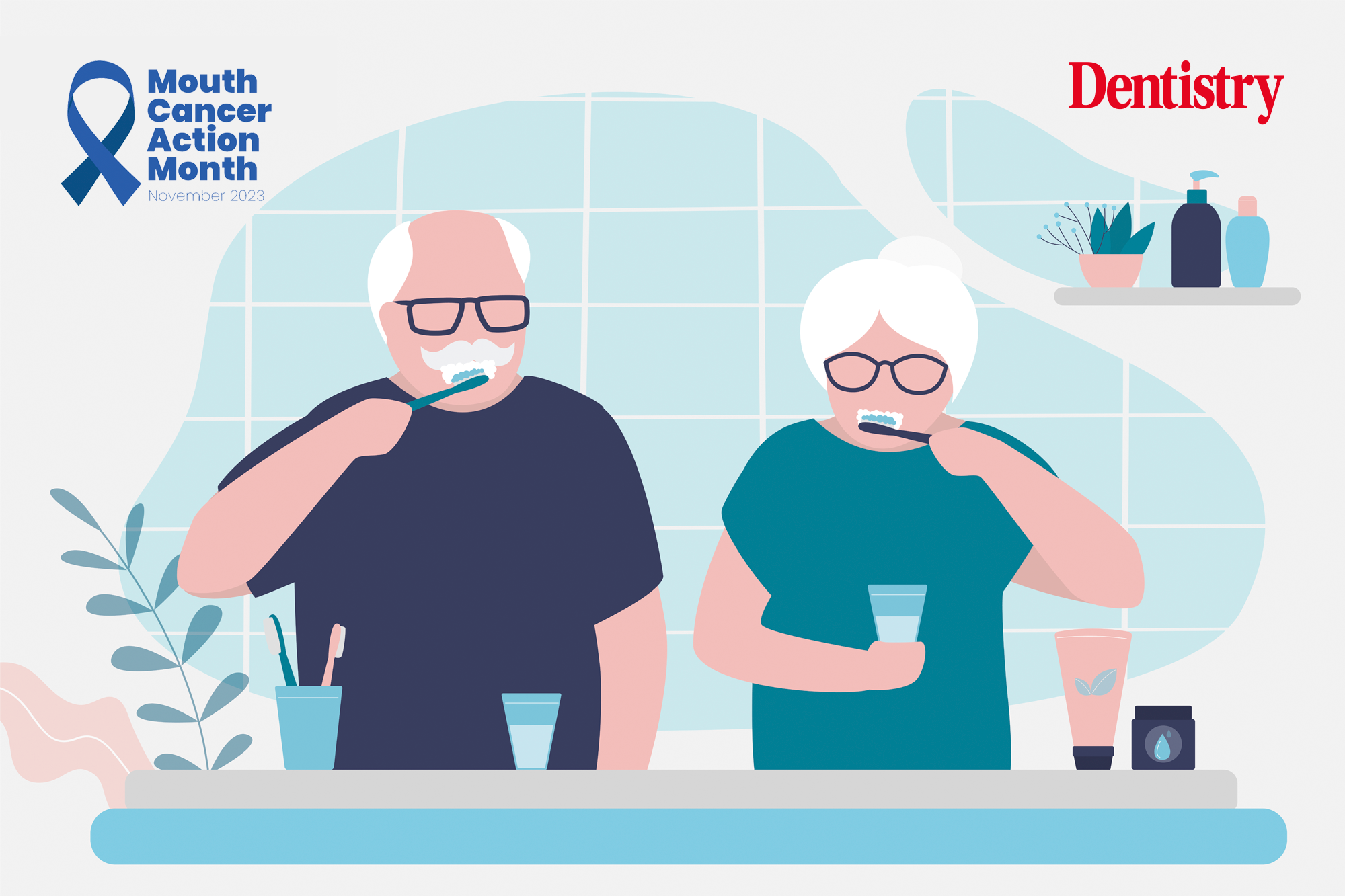
This year’s Mouth Cancer Action Month is giving particular attention to the care homes sector – how can dental professionals help this vulnerable group?
The care home sector often feels forgotten when it comes to examinations of oral health. As part of this year’s Mouth Cancer Action Month campaign, the Mouth Cancer Foundation is appealing for dental practices to work alongside residential care homes in their area to make sure residents receive dental checks like the rest of the population.
Oral hygiene is important at every age, but as 78% of mouth cancer cases occur in the over-55 age group, it is imperative that care home residents look after their mouths. Their oral cavities should be checked on a regular basis, looking for signs and symptoms of mouth cancer.
Emma Riley, Mouth Cancer Foundation ambassador and patron of the Society of British Dental Nurses, says: ‘Our hope is that dental practices across the UK will work alongside the residential homes in their local area.
‘By looking, listening and observing for mouth cancers in our elderly population we may spot these cancers sooner, which may increase the chances of a better outcome and maybe save a life.’
As 57.9% of patients in residential homes and 42% in care homes are living with dementia, extra caution will need to be taken when carrying out examinations.
It is important to observe a resident, notice any behavioural changes and listen to what they may be telling you. Even the smallest detail can be an important sign.
Thorough and regular assessments can help prevent the pain, disturbed sleep and health problems that poor oral health can cause.
Supporting care staff
Care staff need to know how and when to assess the oral health of a resident and when to report changes. All residents should have an oral health assessment when they move into a care home, with the result recorded in their care plan. This includes discussions with family or friends involved in ongoing care. This will help keep on top of any changes in habits.
Discuss:
- How the resident usually manages their daily mouth care. Check whether they need support
- If they have dentures, including partial dentures, whether they are marked or unmarked. If unmarked, ask whether they would like to arrange for marking and offer to help
- The name and address of their dentist or any dental service they have had contact with, and how long ago they received dental treatment. Record if there has been no contact or they do not have a dentist and help them find one.
Staff also need to understand how dental pain or a mouth infection can affect residents’ general health, wellbeing and behaviour. Make sure staff know who to ask for advice, how and when to report any concerns about a resident’s oral health, and how changes in a person’s condition might affect their ability to manage their mouth care.
Everyday oral care
Carers should be encouraged to support residents in their daily mouth care routines by:
- Brushing their natural teeth at least twice a day with fluoride toothpaste
- Using the residents’ choice of toothbrush, either manual or electric, and mouth care products
- Cleaning dentures, brushing and removing food debris, and removing dentures overnight
- Using their choice of cleaning products for dentures.
It is important to ensure the care home has a documented referral pathway so carers can report any concerns and refer to the dental and hospital consultants as soon as possible. If in doubt, check it out!
Spotting changes
- Observe: is a resident showing a change in behaviour? Can you observe drooling from the mouth, unexplained weight loss, or difficulties with eating?
- Smell: is there a bad odour coming from the mouth?
- Look: look closely at a resident’s whole face and neck area. Are there any unusual lumps, bumps, changes in marks on the surface of the skin, or red or white patches inside the mouth? Have dentures become ill fitting?
- Listen: is there a change in the sound of a resident’s voice? Is there a cough or sore throat not clearing up? Does the resident sound like they have something stuck in their throat?
For more information, watch Mouth Cancer Foundation ambassador Emma Riley demonstrate how to carry out an oral screening health check for care home residents in this video.


